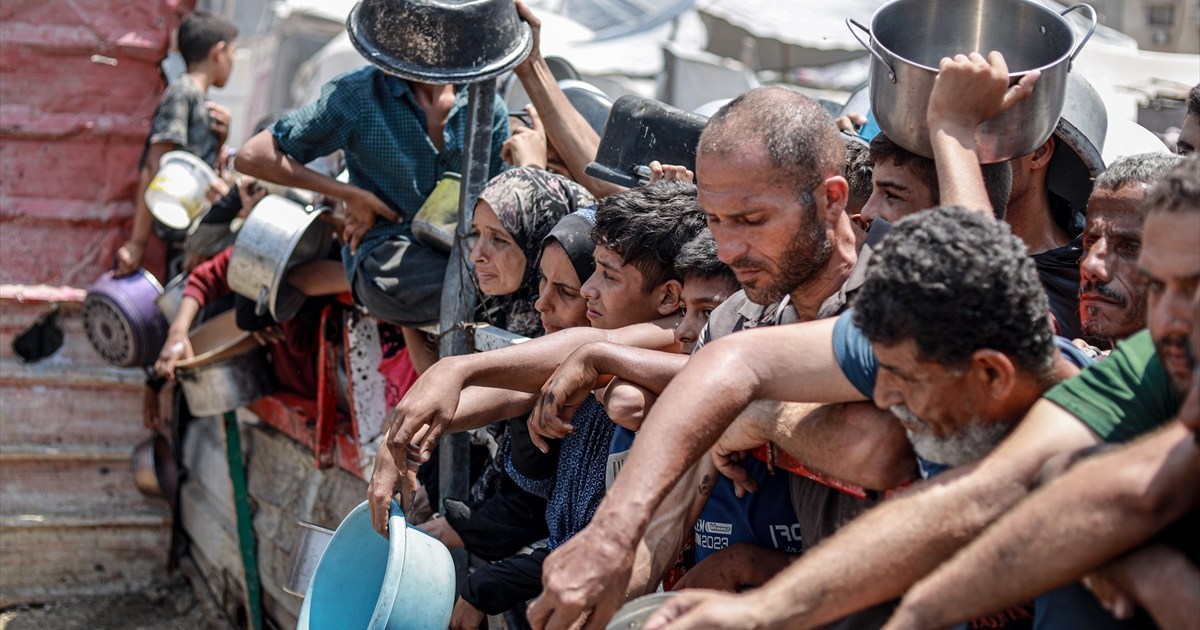According to medical sources, at least 11 Palestinians have been injured in northern Gaza as a result of an airdrop from an aid truck that landed directly on tents where displaced people are living.
As part of its ongoing efforts to allow and facilitate the entry of aid into the Gaza Strip, the Israeli military announced on Saturday that it had carried out an airdrop of humanitarian aid.
However, some of the aid pallets were reported to have struck tents close to al-Rasheed Road, a major thoroughfare that runs north to south of the Gaza border.
Many more pallets were dropped in areas close to the Israeli military’s compound and far from the displacement sites in northern Gaza.
The Israeli military resumed its daily “tactical pause” of operations in some of Gaza on Sunday and established new aid corridors after months of international pressure.
Hamas, a Palestinian organization, described Israel’s airdrop operations and limited humanitarian corridors as “symbolic, deceptive moves intended to whitewash its image in front of the world.”
Hamas claimed in a statement on Sunday that Israel is “deflecting international demands to lift the siege and end the hunger campaign against Palestinians” and that it is a part of “a calculated policy to manage famine, impose coercive realities, and subject civilians to danger and humiliation.”
Gaza receiving food and medicine is not a favor; it is a natural right and a pressing need, according to Hamas, citing the need to put an end to the Nazi-like occupation’s catastrophe.
Hamas called Israeli Prime Minister Benjamin Netanyahu’s handling of aid and the starvation deaths of Palestinians “clear-cut war crimes” and said he was directly responsible for the policies that have caused numerous civilian deaths.
Hani Mahmoud, a journalist from Gaza City, reported on how airdrops used in the past in Gaza “weren’t effective, they didn’t reach enough people, let alone the chaos and violence they have caused.”
The Israeli military is testing every attack and policy, he said, adding that the airdrops confirm what we have previously reported.
Aid organizations expressed skepticism about the safety of airdrops in carrying enough food to address the region’s more than two million residents’ growing hunger crisis, while also referring to it as a “grotesque distraction.”
Many in the humanitarian community believe that airdrops in Gaza were ineffective when several Western and Arab governments carried out them in 2024 when land-based aid deliveries were also restricted.
Airdrops won’t stop the deepening starvation, according to Philippe Lazzarini, the UNRWA director, on Saturday. They can even kill starving civilians because they are expensive, ineffective, and ineffective.
However, British Prime Minister Keir Starmer last week endorsed the idea and said he would work with Jordan to restart airdrops. Additionally, the UAE stated that it would resume airdrops “immediately.”
More than 100 NGOs warned that “mass starvation” was becoming a reality in Gaza in recent days as the humanitarian situation has seriously deteriorated there.
Israel’s military alleges that UN agencies and relief organizations don’t collect aid once it enters the territory because it doesn’t restrict the number of aid trucks entering Gaza.
Source: Aljazeera

Leave a Reply